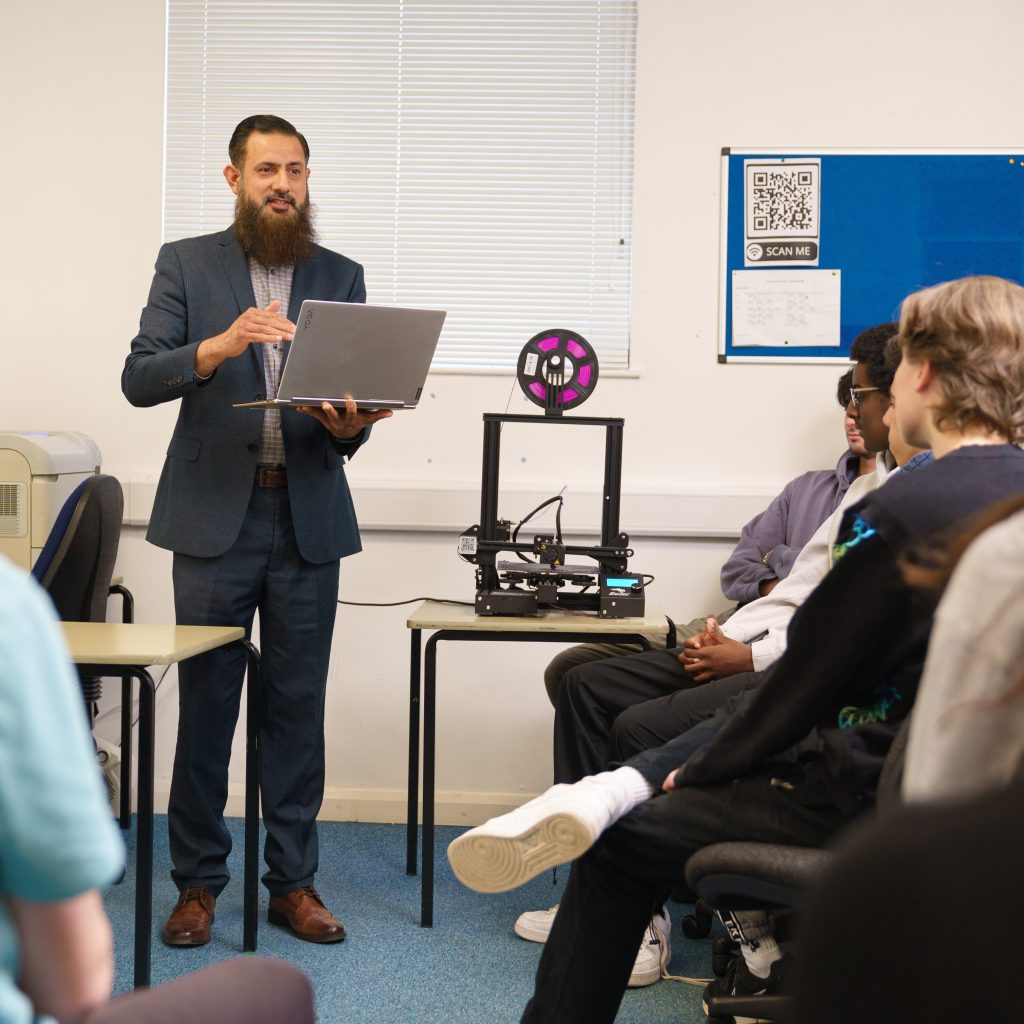Computers started off life as simple adding machines. Then they became useful methods of storing and sorting data. Then they allowed people to type letters, play games, receive mail, play music, share music, play videos, create home movies, shop around the world, share our thoughts, voice our opinions, guide our cars….
In the early 1960s the idea of the internet was conceived. The early developers had no idea what it would turn into, but by the late 1960’s there were four American research computers linked together in what is generally accepted to be the earliest incarnation of what we refer to today as the Internet. This was known as the ARPANet (Advanced Research Projects Agency Network).
Today the Internet connects far too many computers to even consider being able to make a sensible guess – and even more devices when you add in smart phones, tablets, televisions, games consoles, fridge freezers and micro-chips in cows!
In 1965 Gordon Moore claimed that computers would double in power each year; this has since been revised to every 18 months – computers are doubling in power every 18 months. In the world today, having a good understanding of the machines which seem to dominate our lives, can only be a good thing.
Home computers are being called upon to perform many new functions, including the consumption of homework formerly eaten by the dog!
Doug Larson
The Computer Science A Level places emphasis on the following skill areas:
- Abstract thinking
- Problem solving
- Algorithmic reasoning
- Mathematical reasoning
The course provides practical experience of computer programming using the Python programming language. You will develop the theoretical understanding of what makes an efficient program which will place you in good stead to learn and develop further programming languages.
You will also address the hardware and software aspects of computing along with the social and economic consequences that come with such a reliance on technology.
As a Computer Science student you will also learn about the use of databases, operating systems, computer networks, data types, the binary system, control systems and computer architecture. There is much more to this course than simply learning to program.
What Is The Key To Success In A level Computing?
To become a successful Computing candidate you will need to develop your logical thought processes. Computers are logical machines and as such require clear and concise instructions. Being able to think a process through and plan exactly what is required from a solution using a step-by-step approach is essential. There are always a plethora of possible solutions, but normally very few efficient ones.
As with any A-level, independent learning is an absolute must. You will be expected to learn theory as well as take part in practical programming; you will need to take on projects and work your way through the life cycle of those projects and come out the other end with a working computer program. The emphasis is on your own ability to interpret the problems and define a working solution.
Team work will play its part in your course. The computing industry is team-based and so this will be simulated in the classroom where thoughts and ideas need to be communicated and discussed with the merit and attention they deserve.
As with a verbal language, the computer languages will be forgotten if you do not practice. You cannot just learn something and then leave it until the exam to revise. The successful candidates will be those who constantly refer back through their learning and seeing how all of their knowledge and understanding can be utilised in the problem solving challenges that stand in front of them.
The Courses
At Brampton we offer the Cambridge International Education A level and AS Computer Science course. The full A Level is broken up into four modules with each one having its assessment.
You can find full syllabus documents here:
We provide two routes for students to complete the full A level course:
The two year A level
The AS Modules are completed in year 1 with examinations at the end of the first year. The A2 modules are then completed in the second year with the final examinations taken at the end of the second year.
The one year A level
Students study all four modules in one year and sit all four papers at the end of the first year. Students who have already studied computing may be offered the chance to sit the AS Module exam papers in November (of the year they start the course) – but this will be a decision made based on an individual assessment where a student can demonstrate that they are ready to sit the two AS papers so soon after starting the course.
AS level
Computer Science can also be taken as an AS subject where students will spend one year studying the AS Modules and then sit the examinations for the AS module papers at the end of the year. After completing the AS level to a good standard, students have the option to continue onto A2 if they so wish.
Departmental Features
The Computing department has a dedicated networked computer suite with computers running the Microsoft Windows operating system. Students will often bring their own mobile devices to work on as they can connect to the wireless network and use their own device to access the college network. This allows for a seamless transition between the home and college work environment.
The Computing department makes extensive use of Google Suite where students are able to access teaching and learning resources as well as organise and manage their own learning through Google Classroom. Wider reading is extremely important to understand the pace of change in this subject and its relevance to nearly every area of development around the world.
A level Results
2017-21 |
A*/A |
A*-B |
| 55% | 87% |



